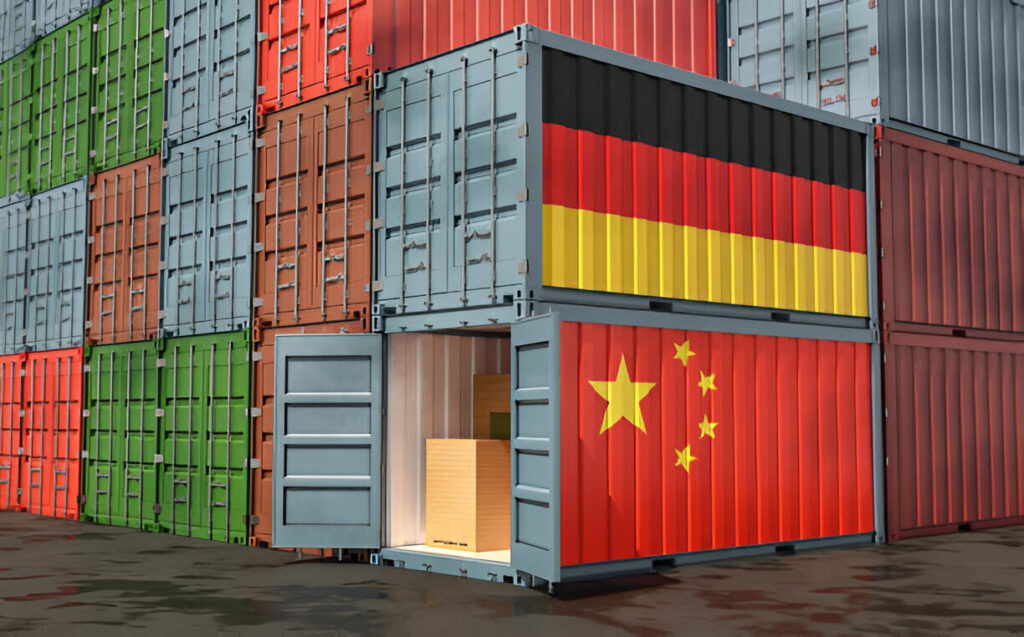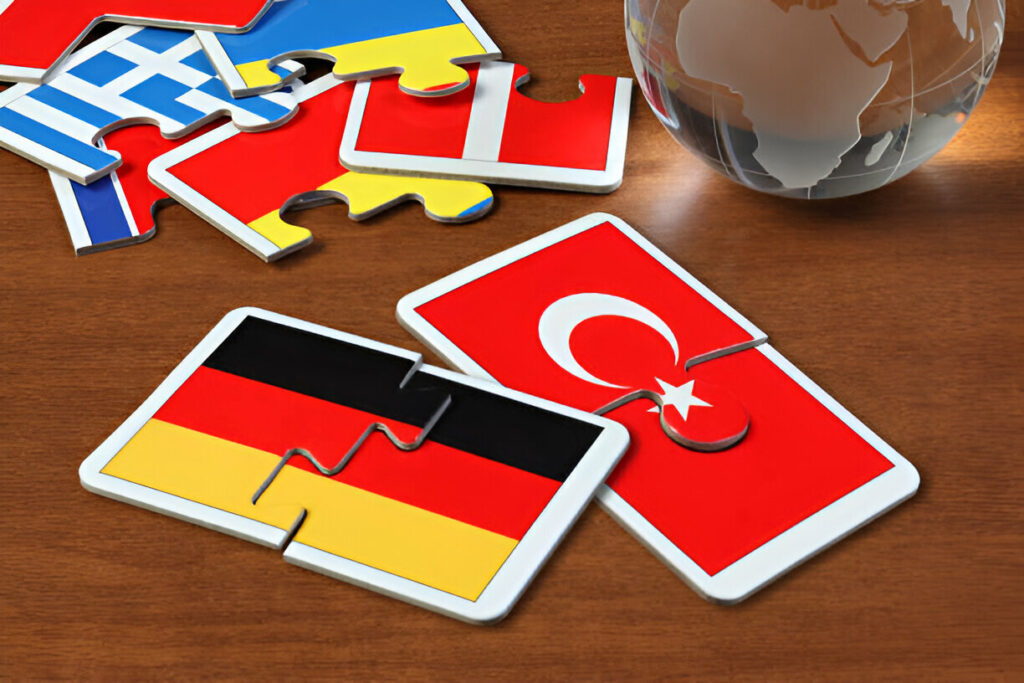In recent years, Africa’s position in global trade has undergone a major transformation. As African entrepreneurs explore new ways to scale their businesses, Turkey, China, and Germany have emerged as three of the most important trade partners, each offering distinct opportunities and challenges.
Whether you’re an exporter of agricultural goods or a buyer of industrial machinery, understanding how these countries operate in trade is essential. From market entry strategies to logistics, pricing, and relationship building, this guide will help you navigate international trade with these major economic players.
Let’s dive into what every African entrepreneur should know before doing business with Turkey, China, or Germany.
1. Why Turkey, China, and Germany?
Turkey:
A gateway between Europe and Asia, Turkey is a fast-growing market for African goods and a top source of finished products like textiles, electronics, tiles, and household items. Turkish businesses value long-term partnerships and are investing heavily in African infrastructure and trade development.
China:
China is Africa’s biggest trading partner, importing raw materials like oil, copper, sesame, and cocoa while exporting machinery, phones, electronics, construction materials, and more. China offers lower-cost manufacturing and high-volume purchasing power.
Germany:
Europe’s largest economy, Germany, trades heavily with Africa in agriculture, green energy, engineering, and tech. It’s a top destination for high-quality African raw materials and a strong supporter of ethical, sustainable sourcing practices.
These three countries are not just markets, they are gateways into regional and continental trade ecosystems.

2. Understanding Trade Dynamics with Each Country
A. Turkey
Top African exports to Turkey:
- Sesame seeds
- Cotton
- Cocoa
- Gold and precious stones
Top imports from Turkey:
- Fashion and textile products
- Building materials
- Household appliances
- Automobiles and spare parts
Tips for Doing Business with Turkey:
- Turkish businesses value in-person relationships; attending trade fairs and expos (like the MEEI Conference) can open doors.
- Language can be a barrier; hire a translator or partner with bilingual reps.
- Expect negotiation, but don’t rush deals—trust is built over time.
Useful Resource:
Check the Turkish Exporters Assembly for product trends and regulations.
B. China
Top African exports to China:
- Agricultural commodities (e.g., sesame, cocoa, cashew)
- Minerals and oil
- Seafood and wood
Top imports from China:
- Mobile phones
- Industrial equipment
- Consumer electronics
- Plastics and packaging
Tips for Trading with China:
- Always verify suppliers through platforms like Alibaba.com or Made-in-China.com.
- Ask for samples and third-party inspection before placing bulk orders.
- Chinese manufacturers operate on tight margins; large MOQs (minimum order quantities) are common.
- Use safe payment methods like escrow or Alibaba Trade Assurance to avoid scams.
Custom Insight: Chinese buyers favor volume, consistency, and low-risk compliance—get certifications and use export-ready packaging.
C. Germany
Top African exports to Germany:
- Coffee, cocoa, shea butter
- Organic foods and spices
- Natural textiles and handmade crafts
Top imports from Germany:
- Industrial and farm machinery
- Medical equipment
- Renewable energy tech
- Automobiles
Tips for Working with German Buyers:
- Germans prioritize quality, certifications (e.g., EU Organic), and clear documentation.
- Punctuality and professionalism are non-negotiable.
- Sustainability and ethical sourcing are strong values, highlighting your story and impact.
Tool Tip: Use Access2Markets to check EU tariffs, requirements, and import taxes.
3. Key Documents and Certifications Needed
To trade successfully with Turkey, China, or Germany, you’ll need:
- Commercial Invoice
- Packing List
- Certificate of Origin
- Phytosanitary Certificate (for food and plants)
- Health and Safety Certificates (especially for Germany)
- Export Permit (depending on the commodity)
- Bill of Lading or Airway Bill
Pro Tip: Always confirm the specific documentation required for each country, as regulations change frequently.
4. Payment Methods and Risk Management
Safe payment options when exporting or importing:
- Letter of Credit (LC): Best for large shipments
- Escrow services: Especially with Chinese suppliers
- Bank wire (T/T): Standard, but only after trust is established
- Trade Assurance (Alibaba): Offers refunds if goods aren’t as promised
Avoid:
- Unverified payment links
- Direct payments without contracts
- Western Union for first-time transactions
Work with trusted banks, freight forwarders, or MEEI’s approved trade partners to reduce exposure.
5. Language, Communication, and Etiquette
- China: Use WeChat and email; hire interpreters for serious negotiations
- Turkey: WhatsApp is widely used; use English or Turkish translators
- Germany: Direct, formal communication; don’t exaggerate or overpromise
Build relationships with cultural awareness. Invest in multi-lingual product labels and international trade consultants to bridge gaps.

6. Use Trade Events to Build Credibility
Attend exhibitions, expos, and B2B meetings to meet real buyers, agents, and partners.
Notable events:
- Canton Fair (China) – massive sourcing expo
- Istanbul Export Summit – connects Turkish exporters with African businesses
- Anuga Food Fair (Germany) – Europe’s largest food and beverage trade show
The MEEI Conference & Trade Expo also brings together African entrepreneurs and global investors in Istanbul annually. This is a great launching point to meet buyers, showcase your products, and build brand visibility.
7. Leverage Platforms Like MEEI HUB
Launching soon, MEEI HUB will help African entrepreneurs:
- Match with verified buyers in China, Turkey, and Germany
- Access export training and documentation guides
- Join trade missions and product showcases
- Get marketing and branding support for foreign markets
This platform solves the problem of trust, connection, and capacity by providing end-to-end support for small businesses going global.
Conclusion
Turkey, China, and Germany each offer unique opportunities for African entrepreneurs ready to expand into global markets. But success doesn’t come from trial and error. It comes from preparation, cultural awareness, digital tools, documentation, and partnerships.
If you’re serious about scaling your business through international trade, now is the time to:
- Learn the rules
- Use the right platforms
- Build credibility
- And partner with programs like MEEI for guidance and support
The world is open for business; Africa just needs to show up prepared.